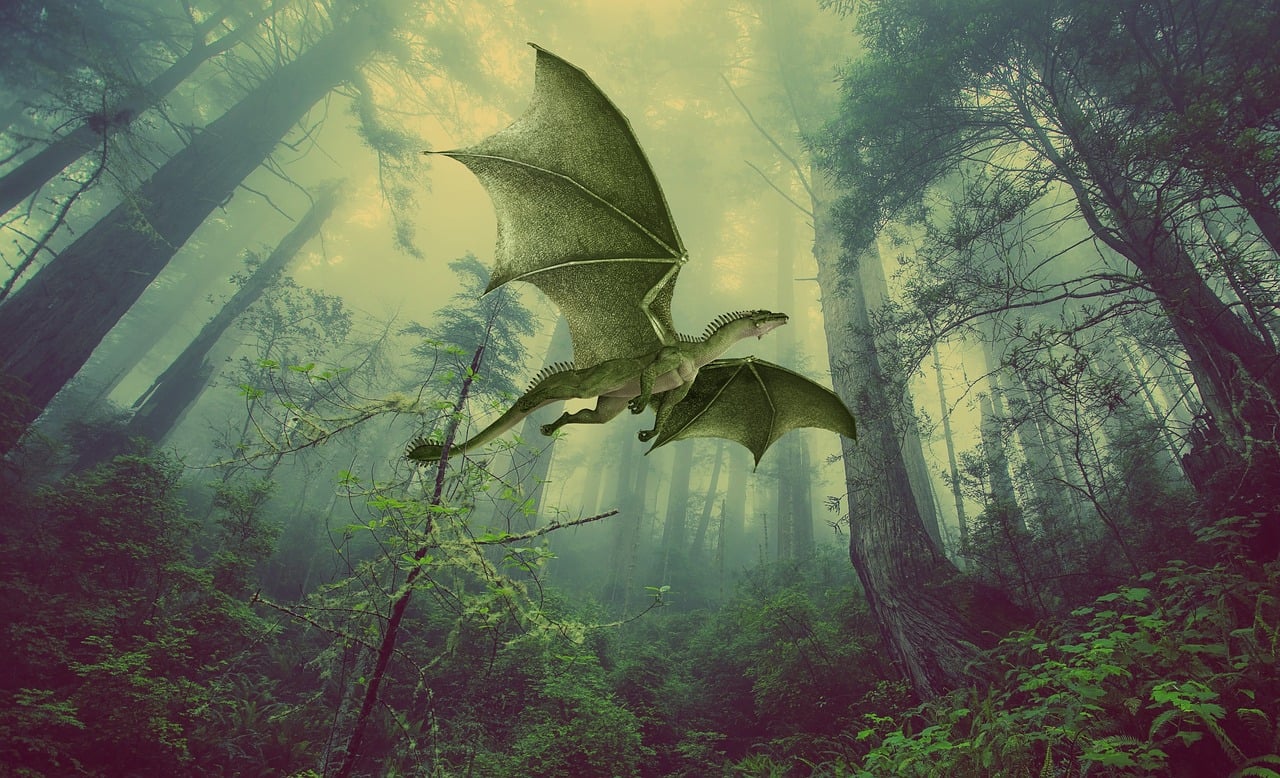Ancient Draconic (Draegionic)
asokhovha (aʒ-OH-ko-vah*): an incantation to summon or unsummon the Tome of Eolaan
centureon (cent-YER-ee-on): a dragon aged at least one hundred years
draegion (DRAY-jee-on): the original inhabitants of Dessos, once bonded to dragons in an effort by the Greater Gods to preserve draegionic magic in exchange for world dominion. Now believed to be dragon riders or tamers in some cultures.
draekhatt, draekhei (drake-AHT, drake-EYE): daughter, son
mautorosi (mau-tor-OH-see): ancient term for horned peoples who now live primarily in Mautor and parts of Skriia
millenneon (mill-EN-nee-on): a dragon aged at least one thousand years
nashanett, nashanei (nah-shan-ETT, nah-shan-EYE): (plural, neuter: nashanar) leader
niish amaar (NICHE ah-MAR): my love
saonivhatt, saonivhei (say-on-i-VAHT, say-on-iv-EYE): (plural, neuter: saonivhar) goddess, god
shavhatt, shavhei (shav-AHT, shav-EYE): (plural, neuter: shavhar) mate, spouse
syljoren (sill-JOR-en): ancient term for saphyrum-dependent peoples who now live primarily in the northern and central parts of the Eidosinian continent and in southern Rillion
vhash (VAHSH): no
vheskhanash (ves-kahn-OSH): the abdication of a draconic throne, usually prompted by a monarch’s inability to produce an heir or a court’s lack of confidence in its leadership
vheth (VETH): yes
zhev annivhosh (ZEV on-i-VOSH): thank you
*ʒ makes the same sound as the ‘s’ in ‘measure’
Brogrenti
aeyak (eye-YAK): a skirt-like garment comprised of overlapping panels of richly dyed linen
braugh (BRAW): strong, strapping
breigh (BRAI): pretty, beautiful
kinnich (KEN-iç): (slang) know
napher gought (NAFF-er GOUT): (derogatory) boil-faced sow
taenach (tie-NAÇ): a headdress made to cover the neck, head, and face
tainach (tay-NAÇ): …I see you, fellow dirty-minded friend
rillanese
araschavka (air-uh-SHOV-kuh): a clitoral hood piercing
gheschal (ge-SHAWL): distress
kas hadem (KAHS ha-DEM): shut up
kavvur (kah-VER): discomfort
mascha (MAHSH-uh): death
Also, ‘the mascha,’ a move made popular by pit-fighting sensation Mascha of House Ideghis, in which the ribs and back muscles are severed, and the lungs are removed from behind.
meschiir (mesh-EER): sir, Mr.
rascha (RAHSH-uh): (plural, raschan) female slave
raschu (RAHSH-oo): (plural, gender-neutral, raschun) male slave
sadarah (suh-DAHR-uh): ma’am, Ms.
Syljian
aaken (AH-ken): to know
ama’re (AH-ma-re): beloved
Amaa (ah-MAH): (universal) leader, teacher, master
amaare (ah-MAR-eh): to love
amii (ah-MEE): (plural, amiien) friend
aon (ay-OWN): no
ashaan (ash-AHN): (derogatory) half-blood
bashiin (bash-EEN): (derogatory) human
besaav’ruh (bay-SAHV-roo): be calm
iiren’norvaa (EER-in nor-VAH): good evening (both salutation and farewell)
iithe’ruh caezo (EE-thay-roo KAY-zoh): eat shit
caezo (KAY-zoh): (derogatory) feces
ciir (SEER): yes
crii’ruh (KREE-roo): stop
daatahl (dah-TALL): for her
daatahr (dah-TAR): for him
drest’ruh (DREST-roo): rise
ennii, enniia (en-NEE, en-NEE-uh): (plural, enniien) son, daughter
gesuu (geh-SOO): dirty
haalii, haaliia (ha-LEE, ha-LEE-uh): uncle, aunt
iiren’hyvaa (EER-in hy-VAH): (both salutation and farewell) good morning/day
iiren’norvaa (EER-in nor-VAH): (both salutation and farewell) good evening
iithe (EE-thay): to eat
imaane’ruh (im-AH-nay-roo): stay/don’t go
kaana’ruh ke’aave tipori (KAH-nuh-roo kay-AH-vay tip-OR-ee): remember to have mercy
miaa, ne’miaa (MEE-uh, neh-MEE-uh): mother, grandmother
miraar (meer-AHR): above
nei (NIE): I, my
neime (NIGH-may): a term of endearment
oeloraati (oh-lor-AH-tee): a period of intense sexual receptivity in Syljian women that coincides with fertility, typically occurring for six weeks every three to five years
peiaa (PIE-uh): father
ros (ROSS): we, our
ru (ROO): little
ruh (ROO): a suffix added to verbs to express the imperative mood (e.g. give commands)
saonis miraar (say-ON-is meer-AHR): gods above
taapad tiik (TAHP-ad TEEK): thank you
torii, toriia (tor-EE, tor-EE-uh): brother, sister
ushaar (yew-SHAR): you’re welcome
vaash’ruh (VOSH-roo): kneel
